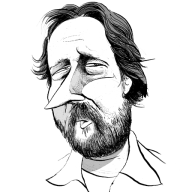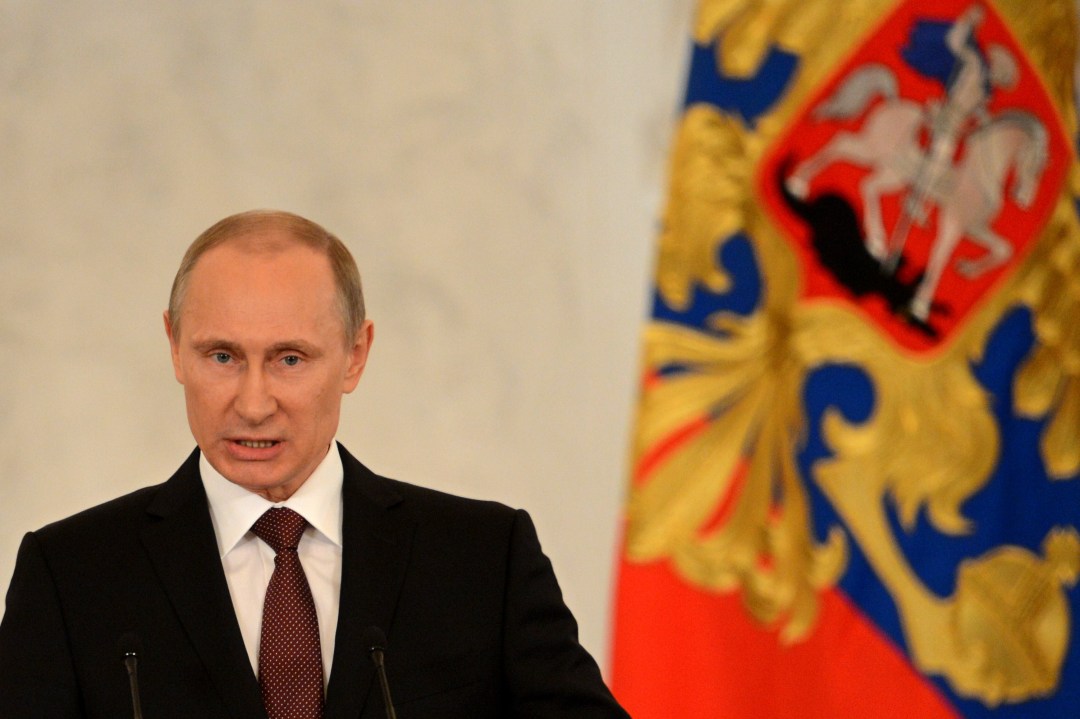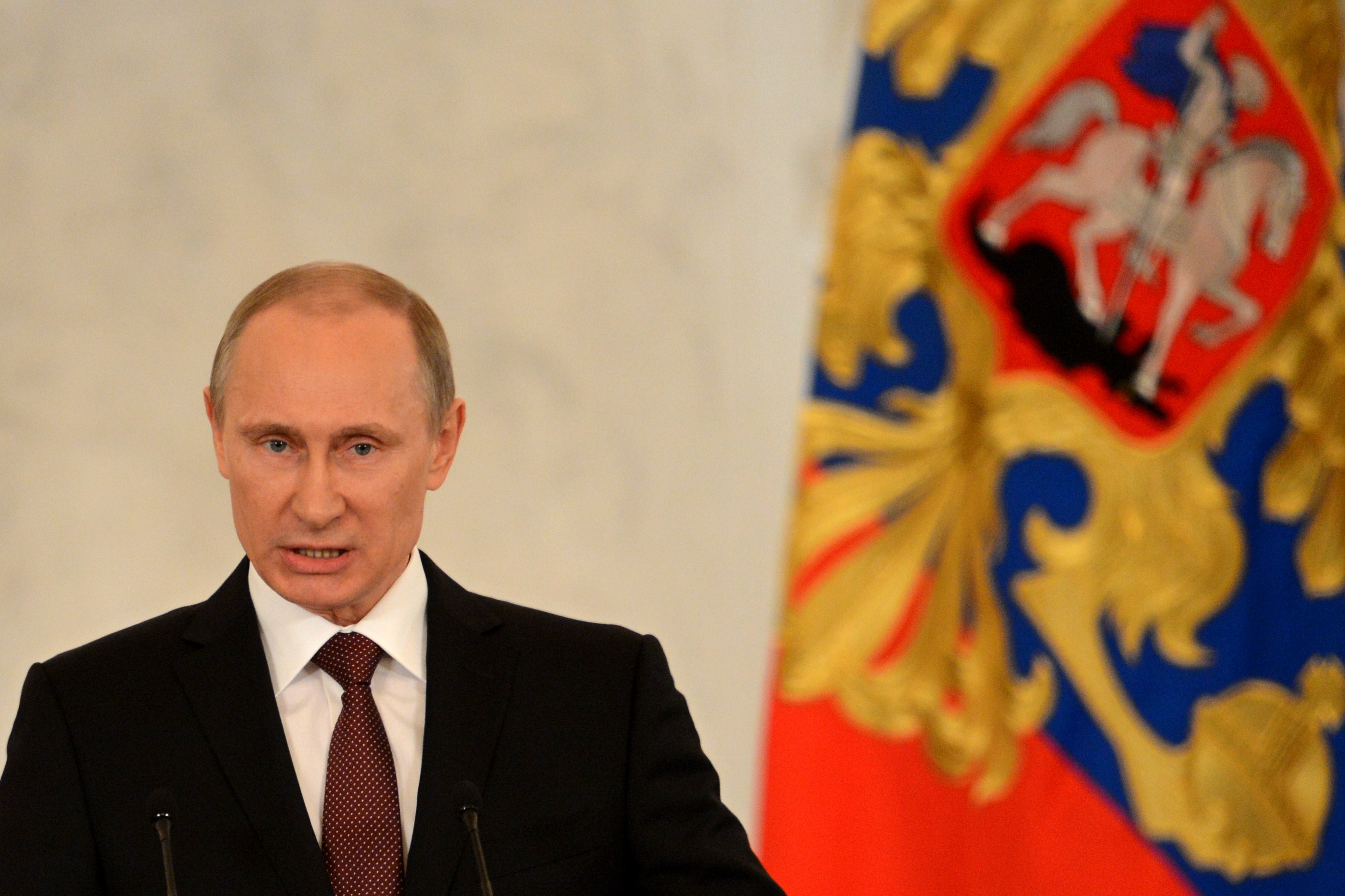An astonishing number of useless twits appear to think Russia’s annexation of the Crimea is somehow not Vladimir Putin’s fault. The poor Russia despot – no longer much too strong a term, by the way – is not responsible for his actions. He was provoked!
Not simply by the Ukrainians, who should, it is implied, have known better, but by the west. It’s our fault and Putin is simply acting logically and rationally. He has every right to reassert Russia’s ancient prerogatives and if we hadn’t penned him into a corner he wouldn’t have needed to at all.
Twaddle of course but the kind of stuff that’s not hard to find. Plenty of people – by no means confined to those you would not expect to know better – appear to be swallowing this nonsense. This is not a matter of right or left since you can find MPs from all quarters prepared to give Putin’s absurd “referendum” some credence. Meanwhile, the anti-EU monomaniacs are happy to blame the crisis on Brussels and quietly – or not so quietly in fact – are thrilled to see someone tell the EU where to shove its (supposed) expansionary dreams. If that means cheering on Putin then so be it. Any ally in a storm.
Another theory asks us to believe Putin’s invasion and annexation of the Crimea was forced upon him by the west’s expansion into Russia’s sphere of influence. We should never have offered Ukraine any kind of guarantee. We should not have extended Kiev any kind of friendly hand. We certainly should not have allowed former members of the Warsaw Pact the opportunity to join NATO. By doing so we provoked Russia. What else would we expect? It’s all our fault.
Of course Russia has no security concern in the Crimea. It was not threatened, nor were the rights or safety of ethnic Russians on the peninsula. Russia’s access to its military bases in the Crimea was confirmed by treaty. Russia was not threatened by encirclement or anything of the sort.
But even if it were that would still not remotely justify Russia’s actions. The Crimea, as I’ve suggested before, is not the prize. The prize is Ukraine itself. Putin has made it quite clear he does not consider Ukraine a proper country. It is really part of Russia. Always has been. Always will be. A possession that got away, not an independent state in its own right.
So far Putin has not won Ukraine. Indeed it seems likely that he is awakening a renewed sense of Ukrainian patriotism. Including, in many instances, amongst Russian-speaking Ukrainians who have shown precious little interest in being reunited with Mother Russia. By “reunited”, of course, I mean, “imprisoned”.
Putin’s actions in Russia should have been enough to warn the west that dealings with Moscow be conducted through gritted teeth. A man whose allies were (almost certainly) happy to bomb his own capital just to smooth his route to power is not, and never was, a man to be trusted or granted the benefit of the doubt.
In fact the international community has been extremely generous to Putin. We “understood” his concerns in the Caucasus and turned a blind eye to his war crimes in Chechnya. That really was a strange and foreign land in a far away place about which we knew little and cared less. But we understood Russia’s determination to protect its own territorial integrity. Besides, we couldn’t really stop him even if we had wanted to. Not that Chechnya was worth anything to us. So we have spent many years understanding Russia’s position.
But Ukraine is not Chechnya. It is part of europe. So much so, in fact, that for a long time a large part of Ukraine was ruled from Vienna. Each day that passes is another day in which Putin is denied his prize but it is also the case that a feeble western reaction to Russia’s aggression might be worse than no response at all. Deploying a miniature stick is worse than deploying no stick at all and, instead, keeping it in reserve for future use.
Dismembering and destroying Ukraine is Russia’s goal. Anything short of that constitutes defeat for Moscow. Denying Putin that prize must now be the west’s mission. If that means taking a financial hit, so be it.
Otherwise what use are our security guarantees? Putin, remember, is acting off the cuff here. This is not some masterly piece of deep and cunning Russian strategy. On the contrary, it is a piece of improvisation. That means Putin’s momentum can be stalled and his advance on Kiev thwarted.
But only by stiffer, sterner action than we have seen heretofore.
Indeed, Putin’s behaviour demonstrates that, if anything, the problem with NATO expansion is that perhaps it did not go far enough. What price the independence of Estonia, Latvia and Lithuania if they were not now members of the western alliance? Even now their liberty is not guaranteed. It is not hard to see how Russian agitators could spark a contrived crisis in the Baltic states; not hard either to see how Putin might attack them again.
But NATO and the EU offer the Balts some protection. Thankfully. They have endured enough – as has the Ukraine, of course – at Russian hands in the past.
Nor, since we’re on the subject, is Putin’s behaviour George W Bush’s fault. The invasion of Iraq was, obviously, controversial. It neither set a precedent for nor justified Russia’s recent behaviour. In the first place, everyone – even Russia – agreed that Iraq was in material breach of UN Security Council resolutions; secondly the US and its allies were hardly in the business of annexing Iraq for themselves.
But even if they had been and even if Bush’s war set a rotten precedent that would not justify Putin’s actions either. Unless you do think one wrong must be matched with or by another. So, no, this isn’t Bush’s fault. It’s not Tony Blair’s fault either.
A few weeks ago the idea that Ukraine might join NATO would have seemed fanciful. It no longer does. The west has a choice now: abandon Ukraine or not. And if we do will our treaty obligations to the Baltic states mean anything or will we abandon them too?
A test, then, of western resolve but also, of our word and even, if you like, some kind of honour. Time may not be on Putin’s side but western cravenness can still allowed Putin to salvage something from his reckless blundering.
In other words, talking about the need to “de-escalate” matters might do more damage than escalating them and making it clear that Russia’s actions will have consequences.
We – that is, the west – are not responsible for Putin’s behaviour. But we are responsible for our response to his provocations.







Comments